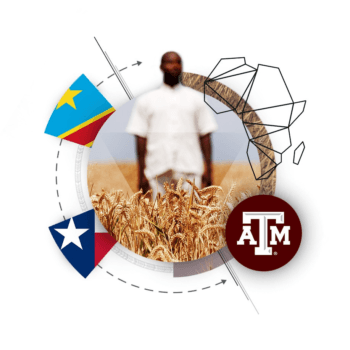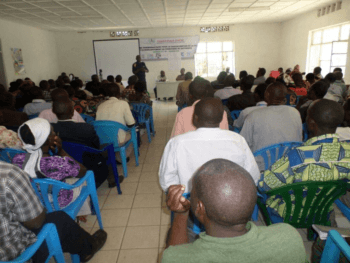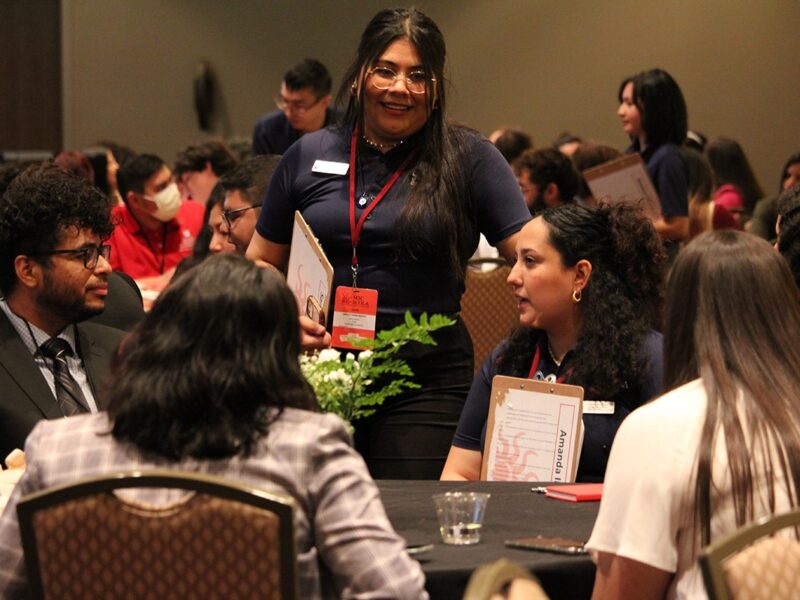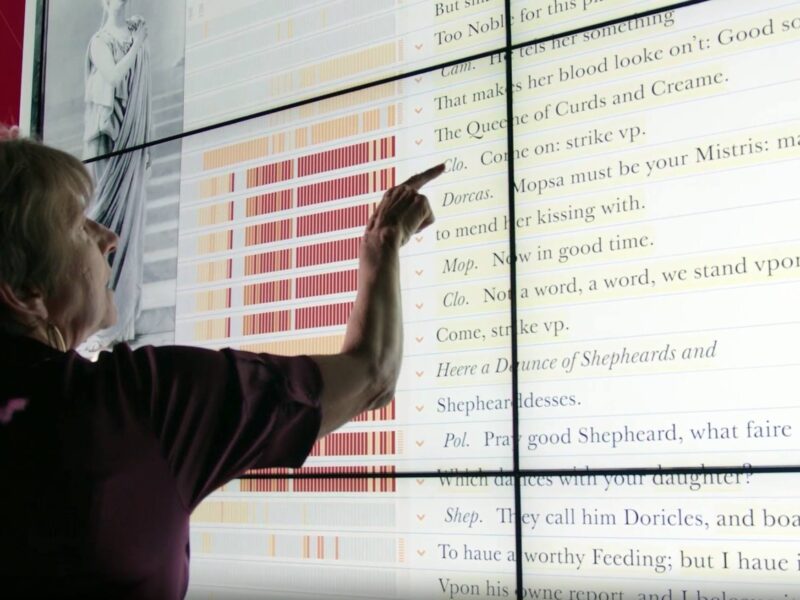Partnership In Congo Focuses On Peace-Building
 The Center on Conflict and Development (ConDev) at Texas A&M University and its partner The Congo Peace Center (CPC) moved their mission for peace-building in the Democratic Republic of Congo (DRC) forward with the signing of an act of community unity at a meeting in the Congolese town of Rutshuru. The act declared a commitment of unity for the stabilization and sustainable development of the North Kivu, DRC region.
The Center on Conflict and Development (ConDev) at Texas A&M University and its partner The Congo Peace Center (CPC) moved their mission for peace-building in the Democratic Republic of Congo (DRC) forward with the signing of an act of community unity at a meeting in the Congolese town of Rutshuru. The act declared a commitment of unity for the stabilization and sustainable development of the North Kivu, DRC region.
“Texas A&M’s support for the Congo Peace Center is an important venture to promote peace building, fulfilling part of ConDev’s mission,” said Jendayi Frazer, executive professor in the Department of Political Science, who directs the efforts of the CPC. “Congo has many of the world’s answers: its forests are key to the global efforts to stem climate change; its hydro-power can light up Africa; its size and location at the heart of Africa is key to progress across the entire continent; and only its people and their commitment to peace and development can realize the promise that Congo holds globally.”

Frazer is a former U.S. Assistant Secretary of State for African Affairs, heading the Bureau of African Affairs, and former U.S. Ambassador to South Africa.
The CPC and National Stabilization Program and Reconstruction of Congo (STAREC) hosted the four-day event, which contained breakout sessions, training sessions and multiple speakers. Community participation grew over the course of the event.
The goal of the dialogue was to teach and discuss ways to find peace for the region through development activities. Topics of training included causes of conflict and mechanisms for conflict resolution, rights and obligations of citizens and participation in local budgeting. Participants worked in breakout groups on inter-community conflict and resolution; relationship between communities and the state authorities; and local development project prioritization.
The communities selected two integration projects to promote economic activities in the region: corn flour mill production and the rehabilitation of the rural roads in chiefdoms Bwito and Bwishya. The CPC will advocate for STAREC and the North Kivu provincial government to support the development of these two community projects and Manya Riche, program specialist for the CPC, will manage the effort.
The goals of the CPC are to help the people of DRC to effectively dismantle instability, insecurity and violation of human rights, including the plague of sexual violence used as an act of warfare; raise awareness and reinforce capacities regarding justice, namely in the domain of transitional justice and the fight against impunity; join the DRC in equipping itself of a new form of participative governance and laws that fall into a common regional strategy aimed notably to the eradication of extreme poverty; contribute to the eradication of negative forces by actions of peace consolidation, namely integrative and labor-intensive projects; and promote development from the beginning, placing emphasis on an economy of integrated and cross-border development.
 The Center on Conflict and Development at Texas A&M University seeks to improve the effectiveness of development programs and policies for conflict-affected and fragile countries through multidisciplinary applied research. To this end, ConDev will harness the innovative power of Texas A&M University and its partners in host countries and communities. The Center on Conflict and Development is in the Department of Agricultural Economics and receives funding from the State of Texas, the Howard G. Buffett Foundation and the United States Agency for International Development. For more information, please visit www.condevcenter.com.
The Center on Conflict and Development at Texas A&M University seeks to improve the effectiveness of development programs and policies for conflict-affected and fragile countries through multidisciplinary applied research. To this end, ConDev will harness the innovative power of Texas A&M University and its partners in host countries and communities. The Center on Conflict and Development is in the Department of Agricultural Economics and receives funding from the State of Texas, the Howard G. Buffett Foundation and the United States Agency for International Development. For more information, please visit www.condevcenter.com.
Media contact: Melanie Balinas, Texas A&M Center on Conflict and Development.





